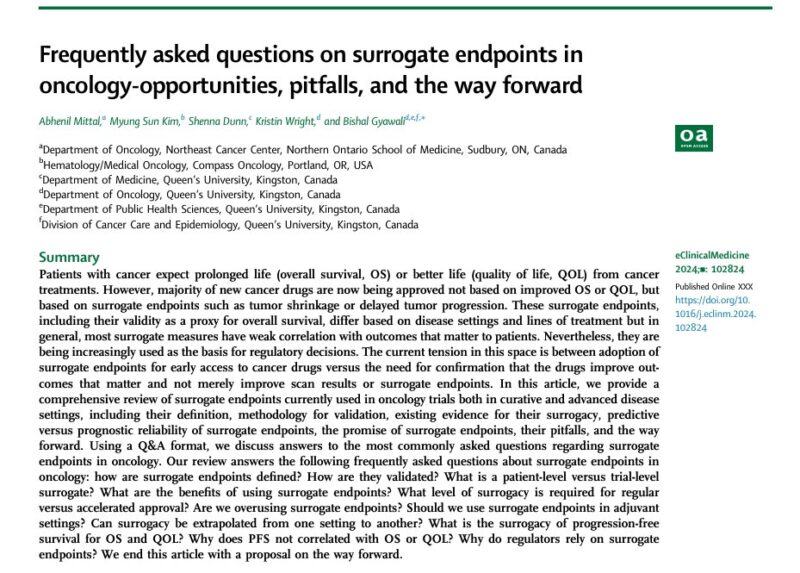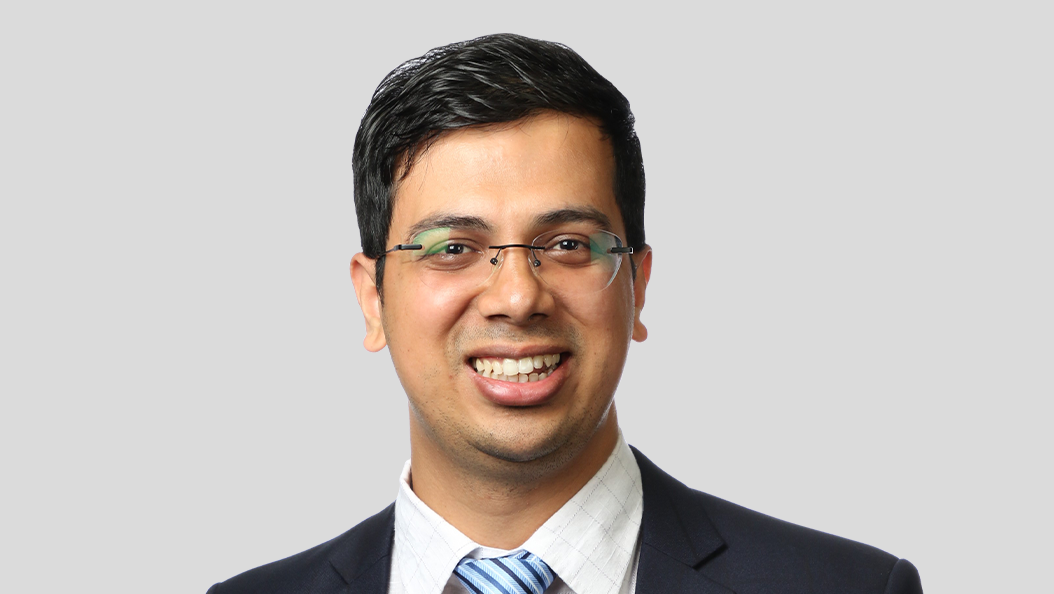Bishal Gyawali shared a post on X about a recent paper by Abhenil Mittal et al. published in eClinical Medicine.
Authors: Abhenil Mittala, Myung Sun Kimb, Shenna Dunnc, Kristin Wrightd, Bishal Gyawali.

“What questions can you think of regarding surrogate endpoints in oncology?
We try to answer them all in this review.
This is open access. So feel free to download, circulate, and use it as a teaching and discussion tool.
All the following questions are answered in this review. Did we miss any other question?
- How are various surrogate endpoints defined?
- How are surrogate endpoints validated?
- What is the difference between patient-level surrogate and trial-level surrogate?
- What are the potential benefits of using surrogate endpoints?
- What strength of surrogacy is required for accelerated versus regular approval?
- Are we overusing and over-relying on surrogates for regulatory approvals?
- Should we consider surrogate endpoints differently in the adjuvant setting?
- Can we extrapolate validity of surrogate endpoints from one setting to another?
- What is the strength of correlation for PFS, the most commonly used surrogate endpoint in trials of advanced cancer?
- Why does PFS not corelate with OS?
- Does PFS correlate with quality of life?
- Do patients and public understand PFS correctly?
- Why do regulators continue to rely on PFS?
- What is the way forward?
- If the endpoint is OS or validated surrogate, can we be confident in the results?”
Source: Bishal Gyawali/X
More posts featuring Bishal Gyawali on oncodaily.com
Bishal Gyawali, MD, PhD, is a medical oncologist from Nepal. Currently an Associate Professor at Queen’s University, Kingston, Canada, and affiliated with Brigham and Women’s Hospital, Boston, USA, he is involved in global oncology initiatives.
Dr. Gyawali serves on several committees, including the WHO Essential Medicines List Cancer Medicines Working Group and ASCO’s Health Equity and Outcomes Committee, contributing significantly to cancer policy and evidence-based oncology.


